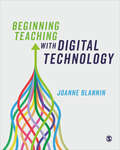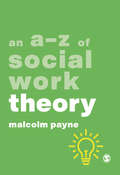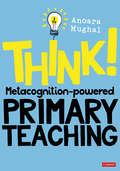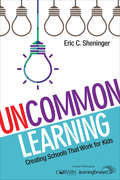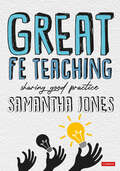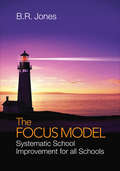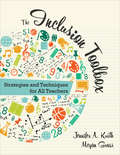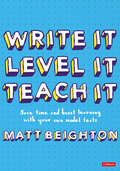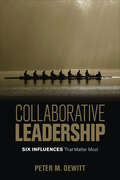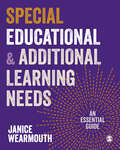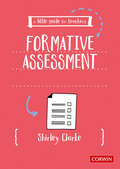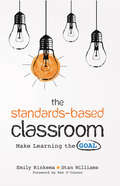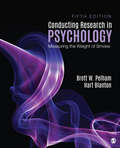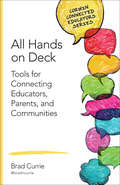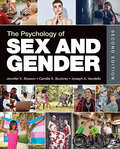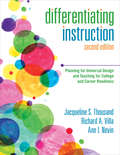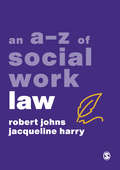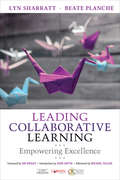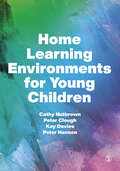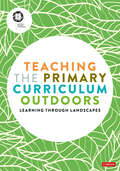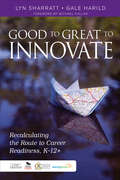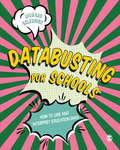- Table View
- List View
Beginning Teaching with Digital Technology
by Joanne BlanninTeachers are now expected to use technology to enhance students’ learning, but what does this mean in the classroom and how can you apply it effectively to subject teaching? This book, for pre-service and qualified teachers, offers you a guide for using technology in primary and secondary schools, including how to decide which technology resource to use, safeguarding and ethical considerations and computer coding in the classroom. Further guidance is provided on using technology across the learning areas of literacy, mathematics, STEM and the arts. Key features include: · Classroom scenarios which tackle common challenges faced by teachers and how to resolve them · Examples of best practice technology use in early childhood settings, primary and secondary classrooms · A future-proofed approach focusing on theory-informed best practice in an ever-changing world of devices and software Essential reading for pre-service teacher education students in both primary and secondary education courses on undergraduate and postgraduate routes into teaching and for qualified teachers looking to deepen their professional knowledge. Joanne Blannin is Senior Lecturer in Digital Transformations at Monash University.
Beginning Teaching with Digital Technology
by Joanne BlanninTeachers are now expected to use technology to enhance students’ learning, but what does this mean in the classroom and how can you apply it effectively to subject teaching? This book, for pre-service and qualified teachers, offers you a guide for using technology in primary and secondary schools, including how to decide which technology resource to use, safeguarding and ethical considerations and computer coding in the classroom. Further guidance is provided on using technology across the learning areas of literacy, mathematics, STEM and the arts. Key features include: · Classroom scenarios which tackle common challenges faced by teachers and how to resolve them · Examples of best practice technology use in early childhood settings, primary and secondary classrooms · A future-proofed approach focusing on theory-informed best practice in an ever-changing world of devices and software Essential reading for pre-service teacher education students in both primary and secondary education courses on undergraduate and postgraduate routes into teaching and for qualified teachers looking to deepen their professional knowledge. Joanne Blannin is Senior Lecturer in Digital Transformations at Monash University.
An A-Z of Social Work Theory (A-Zs in Social Work Series)
by Malcolm PaynePuzzled by terminology, skills, law, or theory? Revising for your placement or exam? Then look no further! This series of concise and easy-to-use A-Zs will be your guide. Designed for both students and newly-qualified social workers, this book will introduce you to over 350 key theories, theorists and concepts in a concise and no-nonsense way. Careful cross-referencing will help you make important connections, while selected further reading will provide you with a springboard to further learning.
Think!: Metacognition-powered Primary Teaching (Corwin Ltd)
by Anoara MughalThe perfect guide to help you embed metacognitive approaches to your teaching. What is metacognition and how can you use it in your teaching? Metacognition – being aware of our own ways of thinking – is popular in education, but it is not always obvious how it links to teaching practice and how to teach it explicitly. This book translates meaningful concepts from research literature not only into practical strategies to try in your classroom but also gives you the opportunity to reflect on metacognitive strategies that you already use. Key topics include: Metacognitive strategies in a range of subjects, including English and mathematics Dismantling metacognitive misconceptions How to use metacognition to improve test performance The importance of developing a growth mindset How to develop self-regulation in the classroom
UnCommon Learning: Creating Schools That Work for Kids
by Eric C. SheningerUnCommon Learning techniques set the stage for mastery and true student engagement Integrate digital media and new applications with purpose and build a culture of learning with pleasure! Let students use real-world tools to do real-world work and develop skills society demands. Be the leader who creates this environment. UnCommon Learning shows you how to transform a learning culture through sustainable and innovative initiatives. It moves straight to the heart of using innovations such as Makerspaces, Blended Learning and Microcredentials. Included in the book: Vignettes to illustrate key ideas Real life examples to show what works Graphs and data to prove initiatives’ impact
Great FE Teaching: Sharing good practice
by Samantha JonesProfessional learning and development by FE teachers, for FE teachers. Celebrating great teaching and learning across the UK′s most diverse education sector. This new title invites you into the minds and classrooms of FE teachers and encourages you to ′think side by side′ with them. *Brings together experienced teachers to profile their practice and share learning *Offers a unique view into classrooms and into the practice of experienced teachers *Enables readers to observe and reflect on the work of fellow professionals *Opens up the discussion of what makes great FE teaching *Profiles and highlights the great work and great teachers in FE
The Focus Model: Systematic School Improvement for all Schools
by B. (Billy) JonesWith school improvement initiatives, quality trumps quantity every time. Today, a vast array of techniques, plans and initiatives purport to improve student performance. But a "shotgun" approach—trying many strategies at once without the deep focus they need to succeed—always falls short. The Focus Model solves this growing problem with a method for carefully implementing research informed initiatives proven to work and getting the most out of them, detailing: From Standards to Learning Intentions—Defining with clarity the skills your students most need now Criteria for Success—Defining with clarity what it will mean for students to have mastered skills Critical formative analysis of students — Taking formative assessment to a systemic level of implementation Impact-Professional Learning Communities (I-PLCs)—Collaborating with colleagues so that the focus is learning for both students and the adults With The Focus Model, your school and system will benefit from the truth that less is more in planning for improvement. "Here′s a first-synthesis of today′s best suggestions about how we can make school improvement a reality instead of a hope. A seasoned, perceptive author has assembled an excellent collection of school-improvement tactics that are demonstrable winners." —W. James Popham, Emeritus Professor UCLA "If the US implements the Common Core Curriculum it will require a constructive alignment between the standards, the teaching, and the assessment. Jones highlights these latter two critical parts of schooling in a way that not only makes the alignment constructive, but he increases the probability of acceleration in student learning." —John Hattie, Director Melbourne Education Research Institute Victoria, Australia
The Inclusion Toolbox: Strategies and Techniques for All Teachers
by Jennifer A. Kurth Megan N. GrossThe tools you need to build meaningful inclusive practices into your education program Even the most experienced educators struggle with the challenge of designing and delivering meaningful inclusive practices in their school communities and classrooms. How can you deliver meaningful learning experiences that meet the needs of ALL students? The Inclusion Toolbox is an all-in-one resource that combines research-based strategies and practical tools to help you design and implement a truly inclusive education program. The Inclusion Toolbox features materials relevant to all grades, disabilities, and stages of implementation, and is organized in a way that allows you to start at multiple entry points. You’ll discover: Step-by-step plans for implementing new programs through teambuilding and leadership Guidance on how to maintain, strengthen, and expand existing inclusive programs Strategies to empower and involve families, students with disabilities, and their peers Techniques to create effective and complementary schedules Tools to assess student interests, develop adaptation plans, encourage students to participate in extracurricular activities, and more With user-friendly online resources and practical strategies, this comprehensive guide will help you expand your toolbox, inspire your students, and make inclusion a reality! "Planning an IEP? Need to provide more support for your paraeducators? Unsure of how to get everyone on the same page when it comes to adaptations and modifications? If you answered yes to any of these questions, you need this book. All of these topics and more are covered in the pages of this practical, resource-rich text. The Inclusion Toolkit will undoubtedly be the new go-to manual for any stakeholder interested in creating high-quality schools for all students. If you are looking for answers beyond the "why" and the "what" of teaching diverse learners, look no further than this powerful how-to guide written by two savvy educators who clearly understand the research and the practices associated with inclusive education in today’s K-12 schools." - Paula Kluth, Educational Consultant "For schools implementing inclusion or improving the way students are served, this book is a must read." - Pam Wall, Guidance Counselor Riverside Middle School
Write It Level It Teach It: Save time and boost learning with your own model texts
by Matt BeightonStop spending hours searching for, adapting and improving model texts for use in your classroom teaching. There is a way to save time and get properly levelled and relevant texts for your teaching – write your own. In Write It. Level It. Teach It., Matt Beighton shows you how and why writing your own model texts for teaching is so much better. Based on his experiences as a classroom teacher and having written nearly 1,000 comprehension texts for the Literacy Shed, Matt demonstrates how to do this quickly and effectively. * Includes writing templates for busy teachers. * Explores why correctly levelled texts matter. * Boosts learning and engagement. * Saves time and effort through collecting and re-using texts.
Collaborative Leadership: Six Influences That Matter Most
by Peter M. DeWittGet the fuel you need to drive collaborative leadership in your school! What type of leadership do you practice? If your answer is transformational or instructional, you’re not alone. Many of us rely on these tenets. But there are better advantages in applying a holistic angle including all stakeholders—an approach known as collaborative leadership. Peter DeWitt unpacks six leadership factors in Collaborative Leadership, all framed through the lens of John Hattie’s research. Adding insight, practical experiences, and vignettes, DeWitt paints a powerful scheme: meet stakeholders where they are, motivate stakeholders to strive for improvement, model how to do it. The meet, motivate, model blueprint will inspire you to Transform your leadership practice Identify where you can make immediate changes Build and empower your leadership team Incorporate all stakeholders into the conversation Designed to shape collective teacher efficacy and foster teacher voice, Collaborative Leadership will leave you motivated to work together.
Special Educational and Additional Learning Needs: An Essential Guide
by Janice WearmouthThis essential text supports students to develop their understanding of children and young people with special educational, and additional support needs. Up to date with the current Code of Practice and legislation, the text offers chapters on each key area of need within Early Years settings, schools and colleges, empowering readers with the confidence to address these needs effectively. The book includes case studies and examples helping to put theory into practice, in addition to learning and teaching points throughout the book, encouraging students to think critically of how they would manage particular issues. Janice Wearmouth is Professor of Education at the University of Bedfordshire.
A Little Guide for Teachers: Formative Assessment (A Little Guide for Teachers)
by Shirley ClarkeBridging the gap between research and practice A Little Guide for Teachers: Formative Assessment gives teachers practical tried and tested strategies to put formative assessment into action in their classrooms. The Little Guide for Teachers series is little in size but BIG on all the support and inspiration you need to navigate your day to day life as a teacher. · Authored by experts in the field · Easy to dip in-and-out of · Interactive activities encourage you to write into the book and make it your own · Fun engaging illustrations throughout · Read in an afternoon or take as long as you like with it!
The Standards-Based Classroom: Make Learning the Goal
by Emily A. Rinkema Stan WilliamsWin big in the standards-based classroom! Standards-Based Learning (SBL) is NOT standardization. In fact, when we recognize the central purpose of SBL, which is to make learning the goal for all students, we can design systems and structures that are more personal, more flexible, and more engaging—for us and for our students. At its core, SBL simply asks us to organize our teaching and learning around three questions. These questions guide the creation of targets, the development of assessments, the instructional planning, and the systems to communicate learning. • Where do we want our learners to go? • How do we know where our learners are in relation to where we want them to go? • How do we move them from where they are towards or beyond where we want them to be? While simple at the core, the transition to a standards-based classroom is anything but. The complexity comes in the implementation, the integration into existing systems, and the difficult task of moving away from what’s most comfortable. The Standards-Based Classroom provides practical strategies and steps based on many years of both failures and successes to support educators during this transition to a standards-based system. The accessible and concrete examples, tools, and templates in the book can be adapted into any classroom. Teachers who are new to SBL will understand the parts, experienced teachers will see the connections to current practices, and all educators will realize the potential SBL has to transform learning.
Conducting Research in Psychology: Measuring the Weight of Smoke
by Brett W. Pelham Hart C. BlantonConducting Research in Psychology: Measuring the Weight of Smoke provides students an engaging introduction to psychological research by employing humor, stories, and hands-on activities. Through its methodology exercises, learners are encouraged to use their intuition to understand research methods and apply basic research principles to novel problems. Authors Brett W. Pelham and Hart Blanton integrate cutting-edge topics, including implicit biases, measurement controversies, online data collection, and new tools for determining the replicability of a set of research findings. The Fifth Edition broadens its coverage of methodologies to reflect the types of research now conducted by psychologists. Two new chapters accommodate the needs of instructors who incorporate student research projects into their courses.
All Hands on Deck: Tools for Connecting Educators, Parents, and Communities (Corwin Connected Educators Series)
by Brad M. CurrieBring communities together for involvement that makes a difference! Impact your students in a positive way and join the leagues of educators who are learning to engage with students, parents, and communities using social media and Web 2.0 technologies. Featuring practical strategies that you’ll want to put to use right away, plus a dedicated series website for additional resources, this short and easy-to-follow book will show you: How smartphones and tablets can work for your goals The secret to getting—and keeping—parents involved How to inform, engage, and empower stakeholders How tools like Skype can connect the community at large The Corwin Connected Educators series is your key to unlocking the greatest resource available to all educators: other educators. Being a Connected Educator is more than a set of actions: it’s a belief in the potential of technology to fuel lifelong learning. "Currie harnesses the key element in today’s social media-infused school environment—‘Knowledge is Power!’ He illustrates just how we need to use this knowledge to support our schools, students, and communities." Daisy Dyer Duerr, Principal St. Paul Public Schools "This book provides educators with a diversified look at the connections schools can make with technology. It will inspire all of us, on a global scale, to stay active in ways once thought unimaginable." Salome Thomas-EL, Award-winning principal and author
An A-Z of Social Work Theory (A-Zs in Social Work Series)
by Malcolm PaynePuzzled by terminology, skills, law, or theory? Revising for your placement or exam? Then look no further! This series of concise and easy-to-use A-Zs will be your guide. Designed for both students and newly-qualified social workers, this book will introduce you to over 350 key theories, theorists and concepts in a concise and no-nonsense way. Careful cross-referencing will help you make important connections, while selected further reading will provide you with a springboard to further learning.
The Psychology of Sex and Gender
by Jennifer Katherine Bosson Joseph Alan Vandello Camille E. BucknerMeeting the needs of gender science today, The Psychology of Sex and Gender provides students with balanced coverage of men and women that is grounded in psychological science. The dynamic author team of Jennifer K. Bosson, Camille E. Buckner, and Joseph A. Vandello paints a complete, vibrant picture of the field through the presentation of classic and cutting-edge research, historical contexts, examples from pop culture, cross-cultural universality and variation, and coverage of nonbinary identities. In keeping with the growing scholarship of teaching and learning (SOTL), the text encourages students to identify and evaluate their own myths and misconceptions, participate in real-world debates, and pause to think critically along the way. The thoroughly revised Second Edition integrates an expanded focus on diversity and inclusion, enhances pedagogy based on SOTL, and provides the most up-to-date scientific findings in the field.
Differentiating Instruction: Planning for Universal Design and Teaching for College and Career Readiness
by Richard A. Villa Jacqueline S. Thousand Ann I. NevinThe ultimate guide to leaving no child behind—newly updated! Now in its second edition, this best-selling book is your one-stop resource for differentiated instruction. Whether you’re new to the concept or just looking to improve your approach, you’ll find tools to meet the needs of all your students—in a way that works for you. You’ll discover how innovative approaches, such as Universal Design for Learning (UDL) and retrofitting, can help you adapt general education curriculum to fit diverse learning styles. Featuring case studies at the elementary, middle, and high school levels, this new edition offers More easy-to-use strategies to differentiate instruction in mixed ability classrooms A new chapter on collaborative planning and evaluation, plus a discussion of co-teaching and differentiation Updated lesson plans tied to the Common Core A greater emphasis on cultural proficiency, ELLs, and gifted students New technology references and resources A strengthened link to RTI Every student is different—and every classroom is different, too. With multiple options to differentiate instruction at any point along the way, this essential guide will help you create the path to success for every student. "Thousand, Villa, and Nevin take three very big ideas in education—Universal Design, Collaboration, and Differentiated Instruction—and combine them in a novel and engaging way. And they practice what they preach – the information and examples speak to someone just beginning to differentiate instruction as well as the expert who wants to further refine his or her craft." —Douglas Fisher, Professor San Diego State University "The extensive emphasis on technology, case studies, and lesson plans throughout the book provide a rich resource to the readers of this exciting text. Administrators, university instructors, and staff developers will find this a valuable tool to support their students and colleagues on their differentiation journey." —Mary Falvey, Retired Dean and Professor Emeritus California State University, Los Angeles
The Psychology of Sex and Gender
by Jennifer Katherine Bosson Joseph Alan Vandello Camille E. BucknerMeeting the needs of gender science today, The Psychology of Sex and Gender provides students with balanced coverage of men and women that is grounded in psychological science. The dynamic author team of Jennifer K. Bosson, Camille E. Buckner, and Joseph A. Vandello paints a complete, vibrant picture of the field through the presentation of classic and cutting-edge research, historical contexts, examples from pop culture, cross-cultural universality and variation, and coverage of nonbinary identities. In keeping with the growing scholarship of teaching and learning (SOTL), the text encourages students to identify and evaluate their own myths and misconceptions, participate in real-world debates, and pause to think critically along the way. The thoroughly revised Second Edition integrates an expanded focus on diversity and inclusion, enhances pedagogy based on SOTL, and provides the most up-to-date scientific findings in the field.
An A-Z of Social Work Law (A-Zs in Social Work Series)
by Robert Johns Jacqueline HarryPuzzled by terminology, skills, law, or theory? Revising for your placement or exam? Then look no further! This series of concise and easy-to-use A-Zs will be your guide. Designed for both students and newly-qualified social workers, this book will introduce you to over 300 key laws, legal terms, and legal processes in a concise and no-nonsense way. It covers all areas of social work practice - adults, children and families, mental health, and youth justice - ensuring you have the knowledge you need to apply the law appropriately, ethically and with confidence.
Leading Collaborative Learning: Empowering Excellence
by Lyn D. Sharratt Beate M. PlancheLeadership, collaborative learning, and student achievement – discover what works! Today’s improving school systems require educators who intentionally collaborate and co-learn in service of students to get expected results. This resource-rich book from experts Sharratt and Planche is a straightforward, strategic path to achieving sustainable communities of deep learners. Research-proven inquiry techniques, vignettes, case studies and practical action-oriented protocols help you build strong learning relationships for high-impact student achievement. System leaders, principals and teachers learn to: Integrate diverse views and perspectives Build trust and hear every voice Apply a replicable inquiry framework to leverage key resources and processes Build students’ cognitive, interpersonal, and intrapersonal skills Use "Assessment-in-Action" to improve, monitor and sustain student and staff progress Build a collaborative culture through learning together Use this guide to transform your school from a place of ‘good intentions’ to a center of intentional practice today! "Is your school ready to learn to meet student needs as a team? If so, Leading Collaborative Learning: Empowering Excellence is the book to help your staff learn together in order to improve student learning." Renee Peoples, Teaching and Learning Coach West Elementary, NC "This is more than just another book on school leadership or school improvement. Collaborative learning is essential for success, and educators working in any capacity can find information here about how their role contributes to the process. From system leaders to school leaders to teachers to students, this book clearly explains the necessity of everyone’s participation in collaborative learning processes. As the authors state, participation in collaboration "is a powerful way to deepen educator capacity, to increase the value of the professional capital in the school, and to harness the power of the collective." Melanie Mares Sainz, Instructional Coach Lowndes Middle School, VA
Home Learning Environments for Young Children
by Cathy Nutbrown Peter Clough Peter Hannon Kay DaviesBy bringing together research evidence on effectively supporting parents to engage with their children’s early learning, and the role of education professionals in developing partnerships with families, this book focuses on partnerships between professionals and parents to enhance family learning for young children in literacy and other aspects of early learning. The move towards setting, home-based, and online learning has accelerated, and it is important for both students and practitioners to value parents’ roles in their young children’s learning; to consider how parents can support young children’s learning in these scenarios, and how to apply this in practice with children aged birth to five. Through a wealth of case studies from real experience, the authors showcase an inspiring range of inclusive projects and approaches with families, including marginalised groups such as bilingual learners, fostering families, and families identified as ‘vulnerable’ including imprisoned fathers and children with specific learning needs.
Teaching the Primary Curriculum Outdoors
by Learning Through LandscapesResearch evidence consistently shows that an outdoor learning environment can improve behaviour, engagement and encourage more active participation in learning. So why keep learning in a classroom? In reality, we know the challenges teachers face. We know the barriers that get in the way of taking learning outside. Learning through Landscapes has three decades of experience supporting teachers with the everyday challenges of teaching outdoors. Through this real life understanding of teaching and step by step guidance, this book shows you that every curriculum subject in primary schools can be taught outdoors. Through the pages of this book, Learning through Landscapes shows you that learning outdoors not only improves the health, wellbeing and attainment of the children in your class - it also brings joy to your teaching.
Good to Great to Innovate: Recalculating the Route to Career Readiness, K-12+
by Lyn D. Sharratt Gale HarildGuide your students to a successful future in the new economy How can schools best prepare students for the highly competitive job market and global economy? This compelling book presents a transformative approach to college and career readiness within the public education system, based on data and best practices contributed by outstanding schools on five continents. Written for education leaders at all levels, this resource shows how to Design an innovative Pathways approach to career readiness that empowers students as informed decision-makers Integrate career training into curriculum through a network of local community partners Develop an approach to life-skill preparation, K-12+, that is inclusive of all. Learn how educators—and entire school systems—can consistently support career development, helping students find rewarding paths forward. "Congratulations and thanks Sharratt and Harild for this inspirational look at Innovation as the next step to move school systems from Good to Great. The examples and advice shared throughout this book and it′s precursor, Putting FACES on the Data have been catalysts for leading my team to thoughtful collective action within our K- 12 Family of Schools as we create pathways for The Literate Graduates together." —Joy Uniac, Superintendent of Education Peel District School Board, Ontario, Canada "Through extensive research and practical examples, this outstanding book puts forward a compelling case for structured, collaborative inquiry processes to achieve success for ALL students." —Janelle Wills, Director Marzano Institute Australia "Without question the job market demands agility, resourcefulness, innovation and fearlessness. The authors of Good to Great to Innovate brilliantly map the DNA of a relevant education." —Debbie Hedgepeth, Assistant Superintendent Vail Unified School District, USA
Databusting for Schools: How to Use and Interpret Education Data
by Richard Selfridge′In the increasingly data-swamped world of education, data literacy is no longer a desirable skill, it is essential. Databusting for Schools is part guide through the complexities, uses and limitations of data; and part challenge to those who too readily make assumptions and draw conclusions. This is an important book.′ James Pembroke, independent data analyst Data rules schools and ignorance is far from bliss. From assessment results to questioning educational claims, there is a growing need to understand the numbers used in education. Education data blogger and teacher Richard Selfridge (aka Jack Marwood) unravels the complexities of dealing with educational data and explains statistics in an understandable, everyday way, relevant to your classroom and your school. He will take you through all you need to know about data and statistics in education including: · Where does education data come from? · The what, why and how of numbers. · Understanding different types of graphs and how to use them. · How to play around with data to see the bigger picture. · How to interpret data, does one thing really lead to another? · Using data to inform school policy. A must-read for all teachers, school leaders, data managers, school governors, and anyone in education who has ever looked at statistical data and broken out into a cold sweat. Richard Selfridge is a primary school teacher and writer on education. He is author of the popular datablog Icing on the Cake and tweets under the sometime pseudonym @Jack_Marwood.
